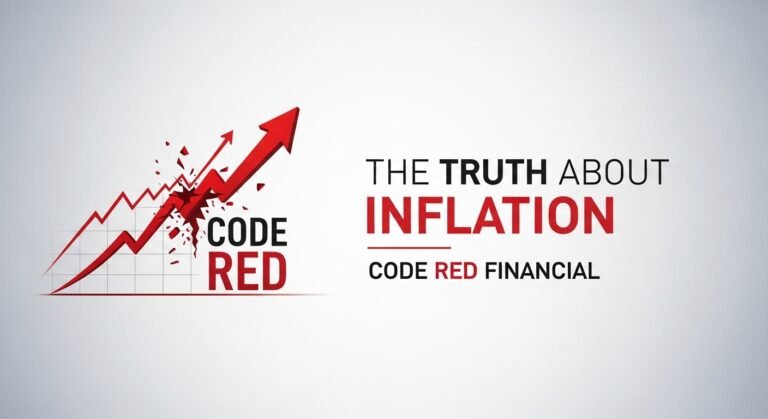
Understanding Gratitude
Have you ever considered how a simple shift in perspective could influence not only your happiness but also your financial health? The practice of gratitude, often seen as just a pleasant emotion, holds surprising potential. It’s more than saying ‘thanks’; it’s a conscious way of thinking that can reshape how you see the world, interact with others, and approach your financial goals. Let’s explore how cultivating appreciation can become a valuable asset in your life.
Gratitude: Beyond Saying ‘Thank You’
Gratitude, at its core, is that feeling of deep appreciation for the good things we experience – whether through relationships, events, or everyday moments. But practicing gratitude goes further than brief acknowledgments. It involves intentionally shifting our focus to recognize and internalize the positive aspects of our lives. This consistent practice helps build a mental framework that emphasizes our blessings, contributing significantly to emotional balance and overall well-being.
From a psychological standpoint, gratitude offers tangible benefits. Research suggests it can counteract negative emotions like envy, frustration, and resentment – feelings that often negatively color our view of personal circumstances, including finances. A grateful mindset tends to foster contentment and satisfaction, leading to a more positive outlook. This doesn’t mean ignoring difficulties, but rather building the optimism and resilience needed to navigate challenges and pursue goals more effectively.
Emotionally, gratitude encourages us to focus on what we have rather than what we lack. This focus not only improves emotional regulation but also strengthens social connections. People who regularly express appreciation tend to build more robust relationships. Stronger relationships translate into better support systems and networking opportunities, which can, in turn, open doors to career advancements or collaborations that positively impact one’s financial situation.
By making gratitude a regular habit, we cultivate a perspective of abundance over scarcity. This subtle but important shift can have real implications for overall well-being and financial health. Understanding gratitude is the first step in exploring its positive influence on various life areas, including wealth accumulation and financial stability.
The Psychological Link Between Gratitude and Financial Behavior
The connection between gratitude and financial health isn’t arbitrary; it’s rooted in psychology. Our mindset significantly shapes our actions, especially regarding money. Studies consistently show that individuals who practice gratitude often maintain a more positive outlook, which is linked to better financial habits and outcomes. This positivity can lead to clearer decision-making and greater resilience when facing financial setbacks.
For instance, research indicates that practices like keeping a gratitude journal can reduce feelings of envy and comparison. Focusing on personal blessings rather than constantly measuring against others fosters a healthier, less anxious relationship with money. This reduction in financial stress allows for more rational and strategic financial planning. Furthermore, gratitude often correlates with higher self-efficacy, giving individuals the confidence to pursue financial goals and opportunities more assertively.
Gratitude also plays a role in strengthening social capital. People who express genuine appreciation tend to build stronger networks. Meaningful engagement in professional or community circles often leads to valuable partnerships, business insights, and collaborative ventures. Nurturing relationships through authentic gratitude allows individuals to leverage the support and resources within their networks, aiding their financial progress.
In short, gratitude influences our financial lives in meaningful ways. It helps build the mental resilience needed for financial challenges, promotes sound decision-making, and strengthens the social connections that can contribute significantly to wealth accumulation. Recognizing these psychological benefits is key to fostering a more positive financial future.
Cultivating a Gratitude Practice: Simple Steps for Meaningful Change
Incorporating gratitude into your life doesn’t require grand gestures. Simple, consistent practices can yield significant benefits for your mindset and potentially your finances.
- Keep a Gratitude Journal: This remains a highly effective tool. Set aside a few minutes regularly to write down specific things you’re thankful for. Include both big milestones and small daily comforts – a helpful colleague, a quiet moment, successfully handling a task. This exercise trains your focus towards appreciation and abundance, a helpful mindset for managing finances and recognizing opportunities.
- Practice Mindfulness: Gratitude flourishes when you’re present. Mindfulness involves paying attention to the current moment without judgment. Even brief pauses during the day to breathe and acknowledge something positive can be beneficial. This practice reduces stress and heightens awareness of the good in your life, which can lead to clearer thinking and better decision-making, including financially.
- Express Appreciation to Others: Sharing gratitude strengthens its impact. Make a conscious effort to thank people sincerely. A specific compliment, a note of thanks, or verbal appreciation can significantly strengthen personal and professional relationships. Feeling valued motivates people, fostering goodwill and reciprocity that can lead to unexpected support or opportunities beneficial to your financial journey.
Integrating these practices is about fostering a consistent habit of appreciation. Over time, this can create a positive cycle where gratitude enhances well-being, encourages positive actions, opens doors to new possibilities, and provides even more reasons to be grateful.

Gratitude as a Valuable Asset in Networking
In networking, where connections are key, genuine gratitude is a significant advantage. Expressing sincere appreciation for someone’s time, advice, or assistance builds immediate goodwill and establishes trust – essential elements for any strong relationship. People are more likely to remember, help, and collaborate with those who acknowledge their value.
Gratitude can also serve as a catalyst for collaboration. When people within a network feel appreciated, they are often more willing to share ideas, resources, and opportunities. This creates a more supportive and productive environment for everyone involved. A thoughtful follow-up thank-you can solidify a connection and potentially turn a brief interaction into a valuable long-term relationship or partnership.
Furthermore, expressing gratitude often encourages mutual support. It’s natural for people to want to reciprocate kindness. By consistently showing appreciation, you foster a positive dynamic where helping each other becomes the norm. This reciprocity can lead to important introductions, referrals, or joint projects that might offer significant financial benefits.
Finally, a disposition of gratitude makes you more approachable and pleasant to interact with. Positivity and authenticity draw people in. Focusing on appreciating others during networking interactions creates a more positive experience and strengthens your ability to build meaningful connections that support both personal and professional growth, ultimately contributing to greater success and potential wealth.
Real-World Examples: Gratitude and Success
While it might sound abstract, the principle of gratitude influencing success plays out in real life. Consider these examples:
- A small business owner, facing difficulties, started a daily gratitude practice focused on her team and clients. This shift improved her outlook and strengthened relationships, leading to increased customer loyalty and a noticeable rise in revenue over the following year. She attributes this positive turn directly to the change in perspective fostered by gratitude.
- An entrepreneur, after a significant setback, consciously chose to focus on appreciating his skills and existing resources rather than dwelling on the loss. This mindset shift enabled him to identify new opportunities and pivot his business successfully, leading to substantial growth and a stronger support network. His story illustrates how gratitude can help reframe challenges into chances for progress.
- Companies known for positive workplace cultures often intentionally foster gratitude through recognition programs. Reports suggest these initiatives correlate with higher employee satisfaction, better retention rates, and increased productivity – all factors that positively impact the company’s financial performance.
These examples highlight how adopting a grateful perspective can influence behavior, strengthen relationships, and contribute to positive outcomes, both for individuals and organizations, including their financial success.
Clearing Up Common Myths About Gratitude and Wealth
While gratitude is valued for personal well-being, some common misunderstandings obscure its connection to financial health. Let’s address them:
- Myth 1: Gratitude is passive. Reality: Gratitude isn’t just passive acceptance; it often inspires positive action. Appreciating what you have can motivate responsible financial behavior, like saving or wise spending, and provide the confidence to pursue growth. It’s about leveraging contentment for positive momentum.
- Myth 2: Gratitude offers no tangible financial benefits. Reality: While the link is often indirect, the benefits are real. Gratitude is associated with improved mental health, stronger relationships, and greater resilience. These qualities equip individuals to better handle career challenges, negotiate effectively, build valuable networks, and make sound decisions – all of which contribute to financial progress.
- Myth 3: Gratitude is purely personal, irrelevant professionally. Reality: Appreciation significantly impacts work environments. Grateful leaders tend to build more loyal and motivated teams. Workplaces where gratitude is encouraged often see better collaboration, innovation, and productivity, directly benefiting the organization’s financial health and the career prospects of those within it.
- Myth 4: Gratitude is a limited resource. Reality: Gratitude grows with practice. Regularly acknowledging and expressing thanks strengthens this capacity, enhancing emotional resilience and fostering a mindset attuned to recognizing and acting on opportunities, including financial ones.
Understanding these realities shows that gratitude isn’t just a pleasant feeling; it can be a practical element in building both personal fulfillment and financial well-being.
Putting Gratitude into Practice: Your Path Forward
Making gratitude a part of your life is a practical step towards enhancing your overall well-being and creating a positive foundation for financial growth. Here’s how to begin:
- Define Your Focus: Consider which areas of your life could benefit most from conscious appreciation. Setting simple intentions – perhaps valuing your current skills while job searching, appreciating small daily comforts, or acknowledging supportive relationships – helps guide your practice.
- Notice and Note: Use a journal or even a simple app to regularly note things you’re grateful for. Pay attention to any shifts you experience – perhaps feeling calmer during stressful financial decisions, noticing new collaborative opportunities, or simply having a more positive outlook. Tracking helps you see the impact.
- Reflect on Progress: Take time occasionally to review your notes. Acknowledge the positive changes, however small. Recognizing how a shift in perspective might be influencing your actions or opportunities reinforces the value of the practice and encourages you to continue.
Integrating gratitude is about building a sustainable habit. By consistently setting intentions, noticing the good, and reflecting on the benefits, you can discover how this simple practice can positively influence your happiness, resilience, and financial journey. It’s an accessible tool with the potential for significant rewards.






